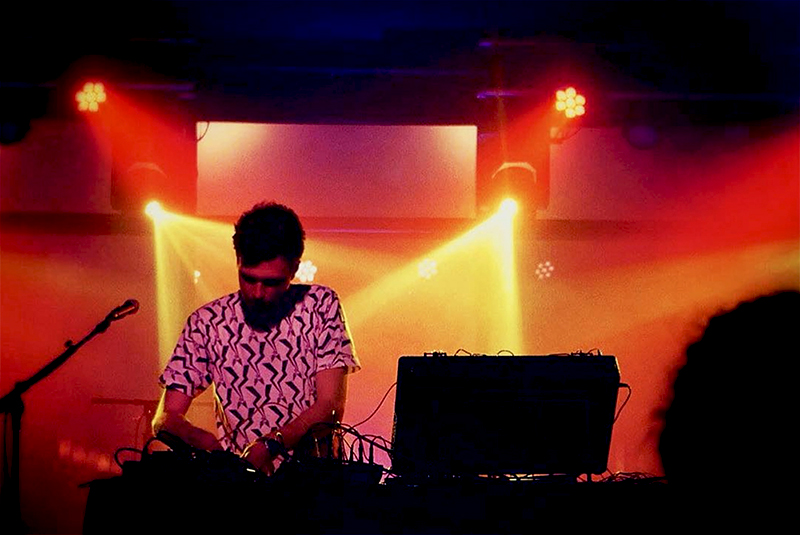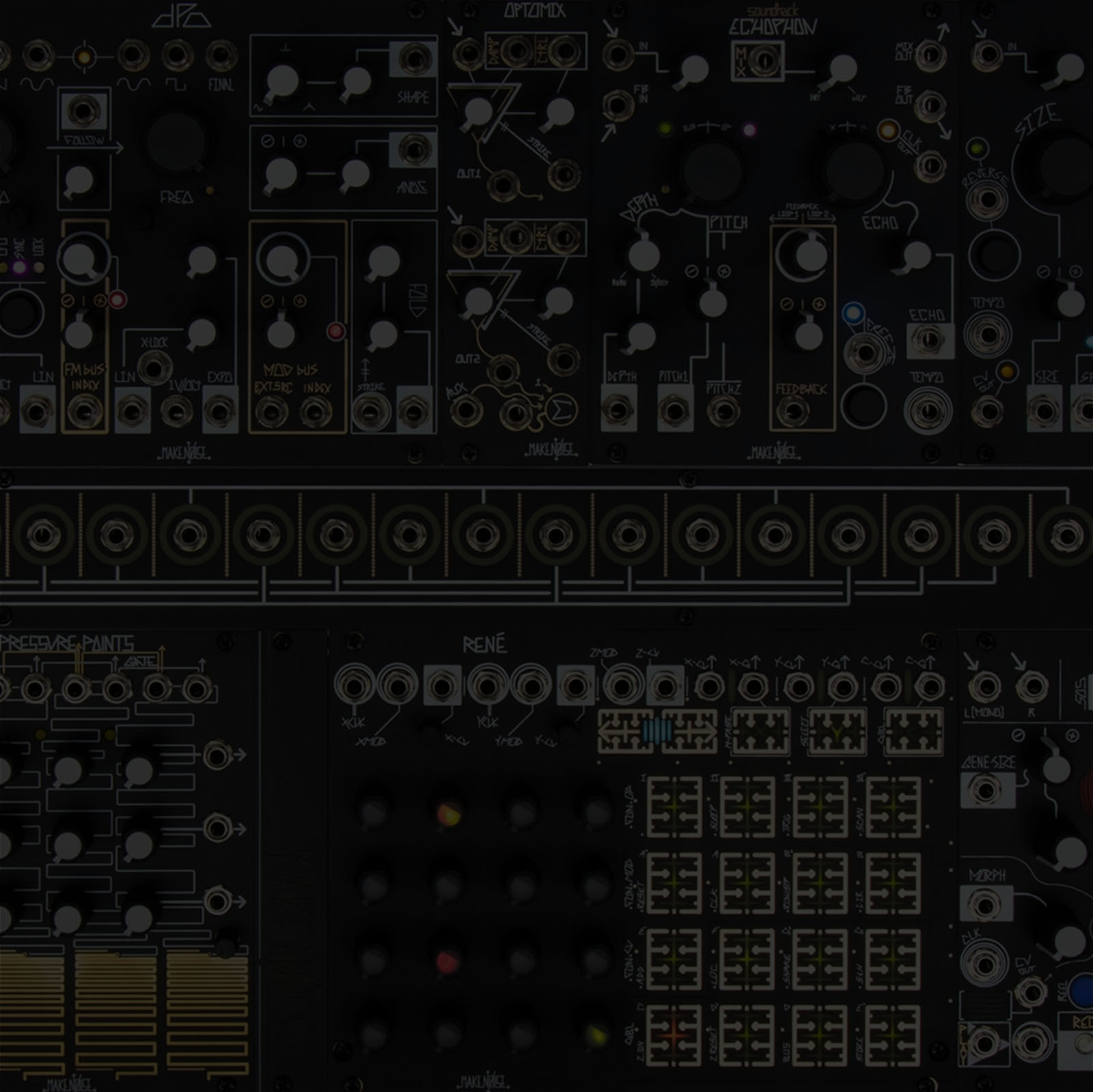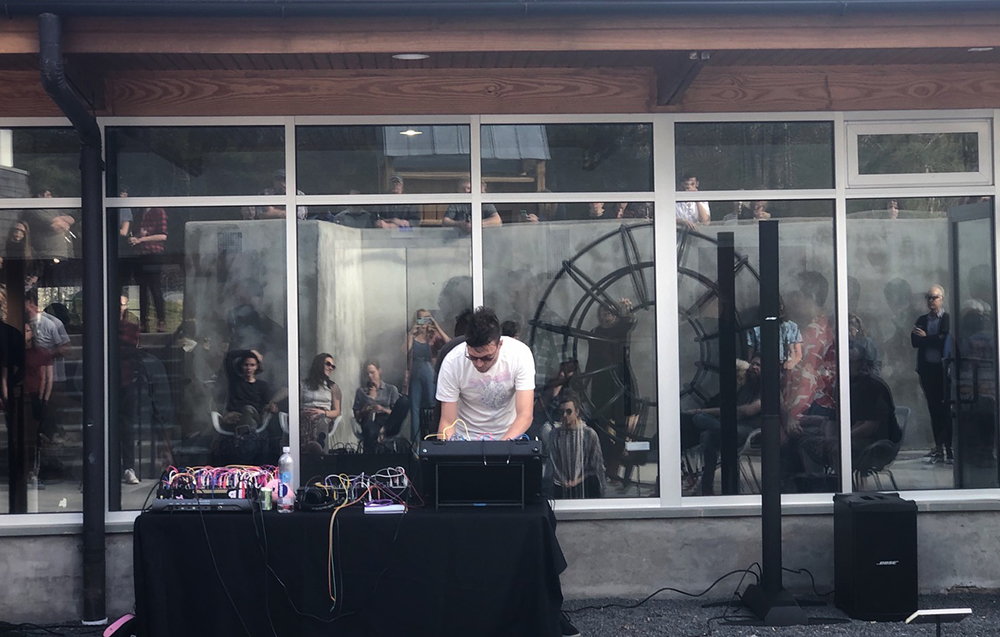
Anyone interested in the Eurorack scene, and most especially Make Noise gear should be familiar with Walker Farrell. Being the most visible employee at Make Noise : beta testing, writing manuals, and creating content for their YouTube channel he is creating interest, and showing a taste in experimenting, trying new alleys, thinking outside the box. Witty, talented we feel lucky that he be a creative and prolific composer…
What have you been working on lately, and do you have any upcoming releases or performances?
I’ve been in an extended period of low musical productivity, so I cannot comment much there. I did some livestream events in 2020, but those seem to have gone mostly away this year and I’m not interested in playing in-person shows again yet. I play music all the time but not much for release or performance at the moment. It’ll come back. It helps that I must be musically creative for my job in creating videos about synths, that keeps my creative mind alive regardless of what else is going on.
How were you first acquainted to Modular Synthesis? When did that happen and what did you think of it at the time?
I don’t know when I first found out about modular synths but it was in 2008 that I discovered they were actually available contemporarily. I had at that time sort of hit the limit of what I could learn about subtractive synthesis and didn’t really know where to go from there, so I quickly decided to try modular out for myself.
When did you buy your first system?
I believe it was early 2008.
What was your first module or system?
I pieced together a single row Synthesizers.com cabinet over about 6 months.
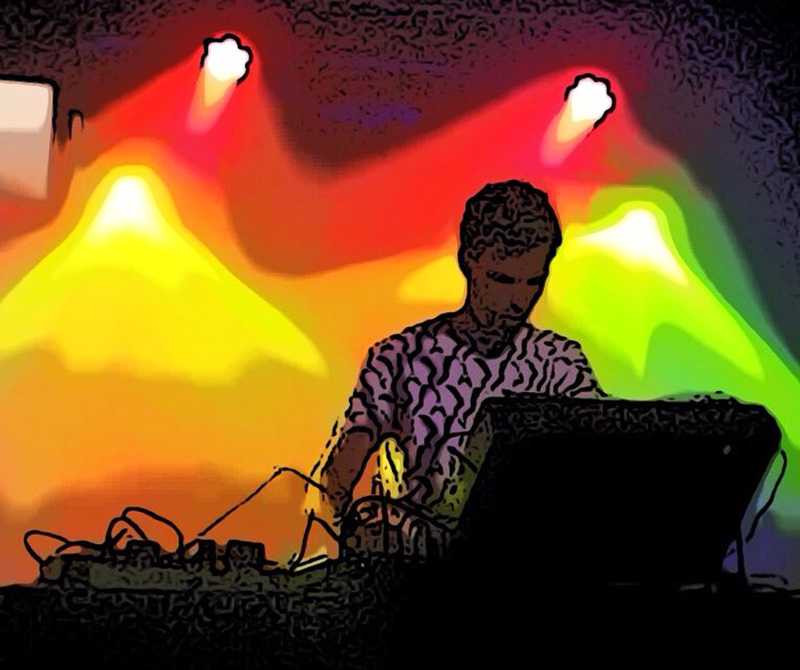
How long did it take for you to become accustomed to patching your own synthesizer together out of its component parts?
Not long, because I was starting with definitely not enough components to do much with so I quickly started patching them together in “wrong” ways to see what happened. I slowly switched to Eurorack starting in 2010 or 2011. There were many more options for modules in that format, which meant many more ways to patch and learn.
What was the effect of that discovery on your compositional process?
Doepfer manuals were a big flashpoint – the idea of using things like logic circuits and switches for composition unlocked an important door. The manual for the original MATHS resonated as well. Particularly the patch examples section, where a load of experiments with shaping voltages were presented as having value in themselves, over and above any particular musical end. These things really solidified my suspicions about genre in its many forms (musical genre, “modes” on devices, gender, etc.): There is no objective reality to a list of genres in a given categorical structure. They are built up culturally via performance and repetition, and then assigned a reality after the fact. MATHS does many things, but the possible activities of a MATHS aren’t a series of “modes,” they are created from scratch and can be altered or destroyed, and there is no telling for sure that all the possibilities have been found. For me this functions as a microcosm for the way I approach playing and composing.
This also happened right around the time I picked up the anthology book Audio Culture: Readings in Modern Music, which destroyed many assumptions I hadn’t previously known I was making about music. Between reading the passages in that book, and experimenting with modular synthesizers, I began to remove some of the many boundaries that had been unwittingly constructed in my head. Boundaries between music and sound, between sound and silence, between listening and playing. I stopped theorizing music as creation and musician as creator. I began to reject the notion that musical “output” should or could be measured by the “quality” of dead “pieces” of music. My focus gradually began to shift from production to practice.
Since 2013 I have also worked on instrument design with Make Noise, and my practice in this area has become heavily fused with my practice as a musician. I see the creation of instruments as an extension of the creation of music, and vice versa. Not only are we helping musicians to create the music they want to play, but the musicians who use our instruments are extending our ideas beyond where we could ever take them on our own.
Discussions on instrument design and musical aesthetics with Tony Rolando over the years have also shaped my approach in a big way.
On your existence?
Foundational. In my musical practice I have learned so much about building structures from raw matter, emphasizing relationship and development over identity, and making choices based on particular situations and needs rather than predetermined goals and rules. These lessons have infused my outlook on every level, from aesthetics to ethics to politics.
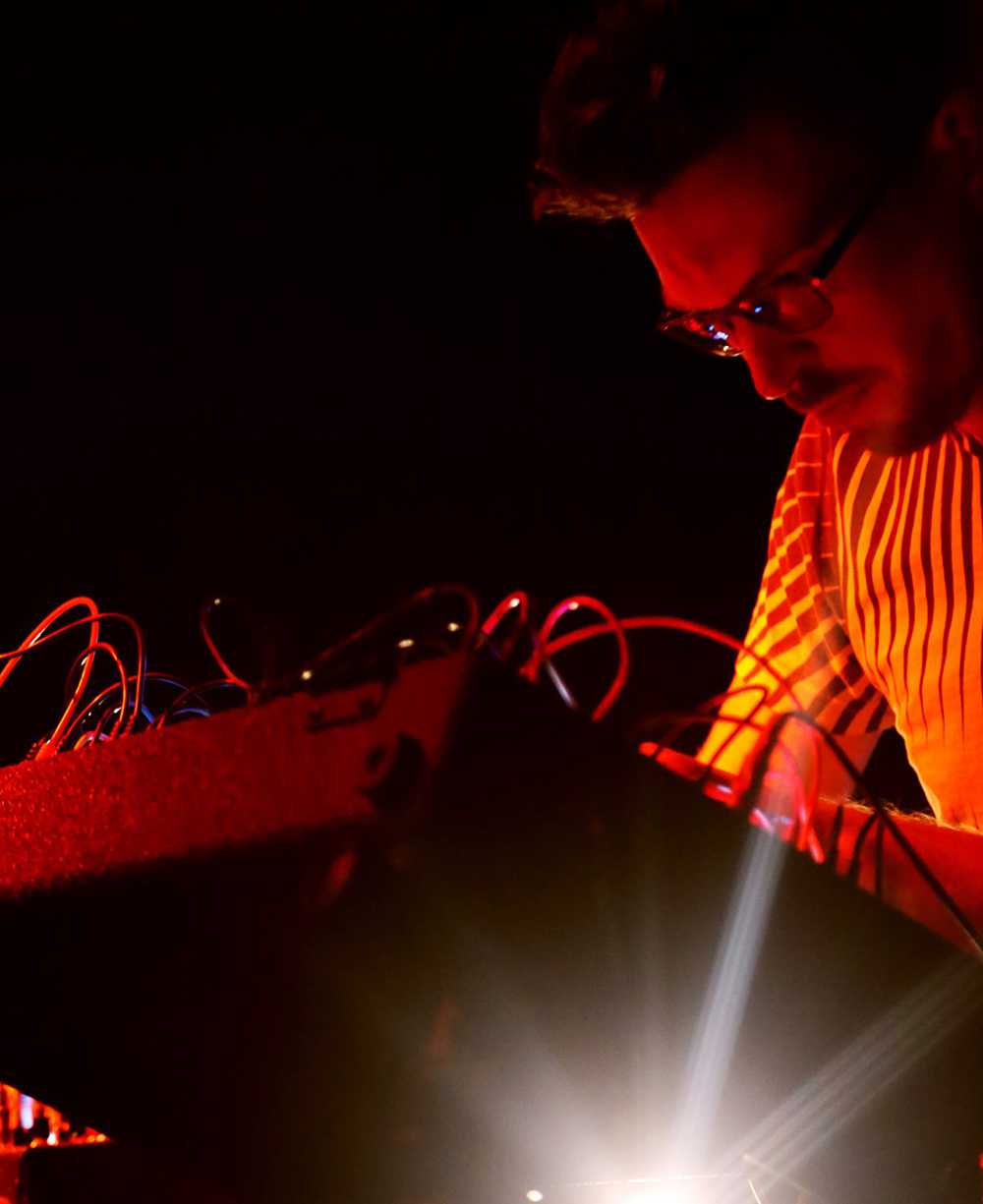
You represent Make Noise and use modules from the brand, any other ones?
My personal system hovers around 60-70% Make Noise. Supplementing that core with modules from Doepfer and 4ms lets me fill pretty much all the needs I have. Also the Synthesis Technology e350 has been in the rack for over a decade. I have a number of other individual modules from various companies but I’d say these are the ones I consider essential. I’ve used and enjoyed tons of different stuff over the years and this is what I’ve whittled it down to. I also love the Industrial Music Electronics (née Harvestman) stuff but in my experience it’s best suited for use in its own system, so I don’t currently have any of it in mine.
Quite often modularists are in need for more, their hunger for new modules is never satisfied? How do you explain that?
Something like this is true for a certain type of person involved in almost any interest a human can take. Perhaps it’s that the fun of imagining possibilities is an end in itself. Perhaps it’s a procrastinatory crutch of some sort. Perhaps the “hunger” is situational, spurred periodically by the musical limits of the person’s current system. It probably depends a lot on the particular person.
I think that it is easy to over-amplify this aspect of modular synthesis. Certainly there is a consumerist bent to some people’s approach, and it will always look prevalent in spaces and forums that are specifically about discussion of modular synths. Personally, I find repugnant the meme-ified portrayal of modular synths as addictive destroyers of bank accounts, relationships, ambitions etc. I think it is gross and inaccurate. There are many many musicians, both famous and unknown, using modular synths in healthy, creative, inspirational ways.
I’ve also found it to be the case that discussions of technique sometimes get confused with consumerist discussion, to our detriment. To talk about technique and theory in electronic music necessarily involves some discussion of gear. Legitimate backlash against discussion of gear in a consumerist sense sometimes leads people not to want to hear about technique and theory either, and to fall into the repetition of closed-minded slogans like “let the music speak for itself.” I find this to be a troublingly anti-intellectualist perspective. If music is not worth talking about, is it worth listening to? Is it worth playing?
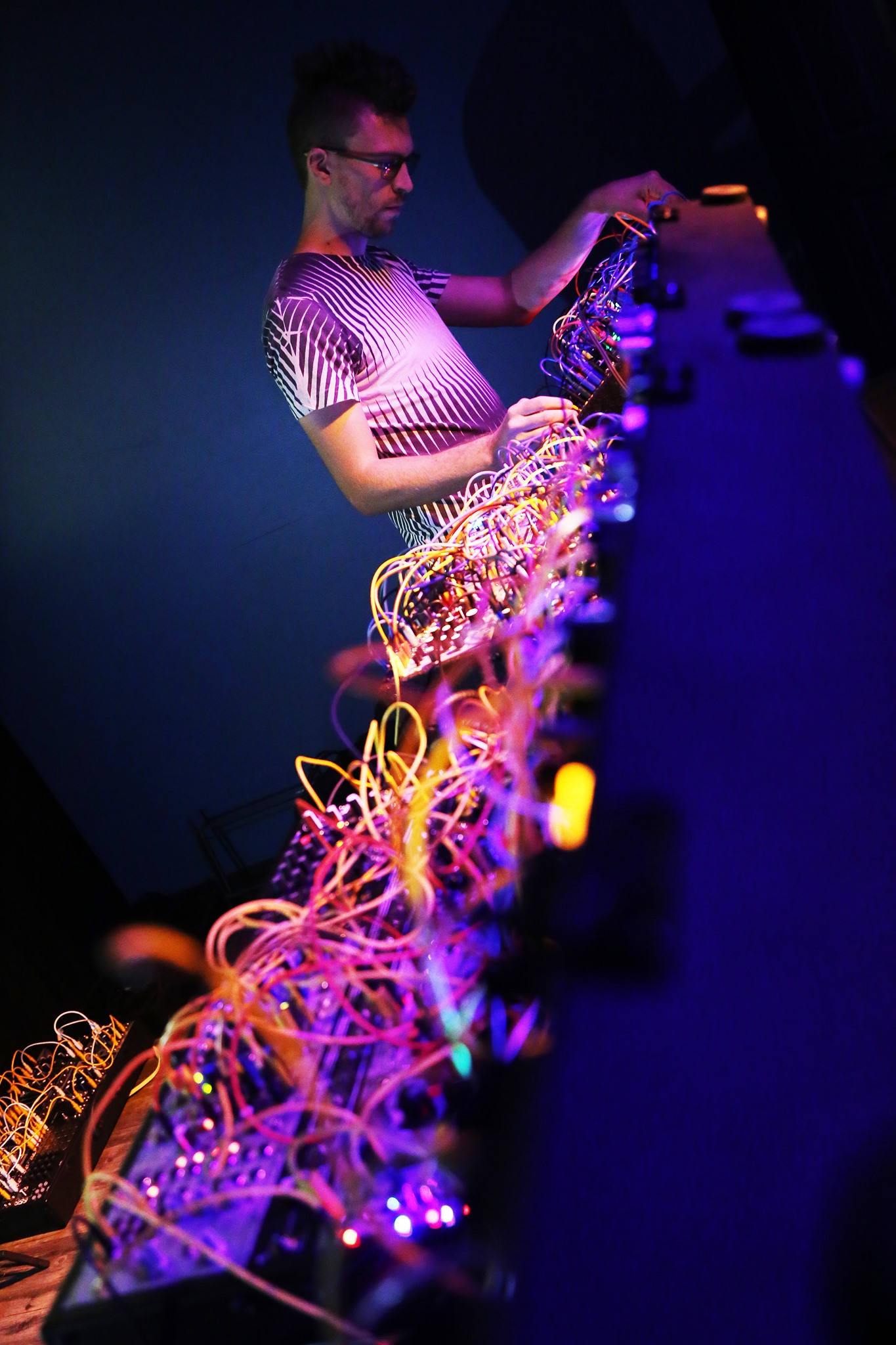
Instrument building may actually be quite compositional, defining your sonic palette, each new module enriching your vocabulary. Would you say that their choice and the way you build your systems can be an integral part of your compositional process? Or is this the other way round and you go after a new module because you want to be able to sound-design some of your ideas?
I think both are true here, although personally I have not really altered my system significantly in either way recently. Having created the layout of my system in the way that I want it to be, I now can do most of what I am wanting to do with little preparation necessary. Being involved in design of instruments with Make Noise also fills a lot of that type of desire. In some ways especially with electronic music the design of an instrument becomes so foundational to composition or performance that it’s hard to know where one begins and the other ends. (In “Design of an instrument” I include the tools themselves as well as the way they are laid out and ultimately connected together by the synthesist.)
How has your system been evolving?
Not much at all the last couple years. I have one case that I run like a synth voice, based around René/DPO/QMMG, and another case that I run as a processor/tape music system, based around Morphagene and Phonogene. I use them either separately as small systems or together as a big system. I make little adjustments occasionally but it’s been basically the same setup for the last four years or so.
Do you tend to use pure modular systems, or do you bring in outside effect and devices when playing or recording?
I use whatever feels right for what I am trying to do. I’ve been leaning in an “electro-acoustic” direction for several years, incorporating my playing with piano, glockenspiel, other devices, computer music, and especially field recording. I really don’t care for building up walls between modular and other stuff, or in trying to define what does and does not count as modular. It’s a great privilege to have easy access to so many instruments.
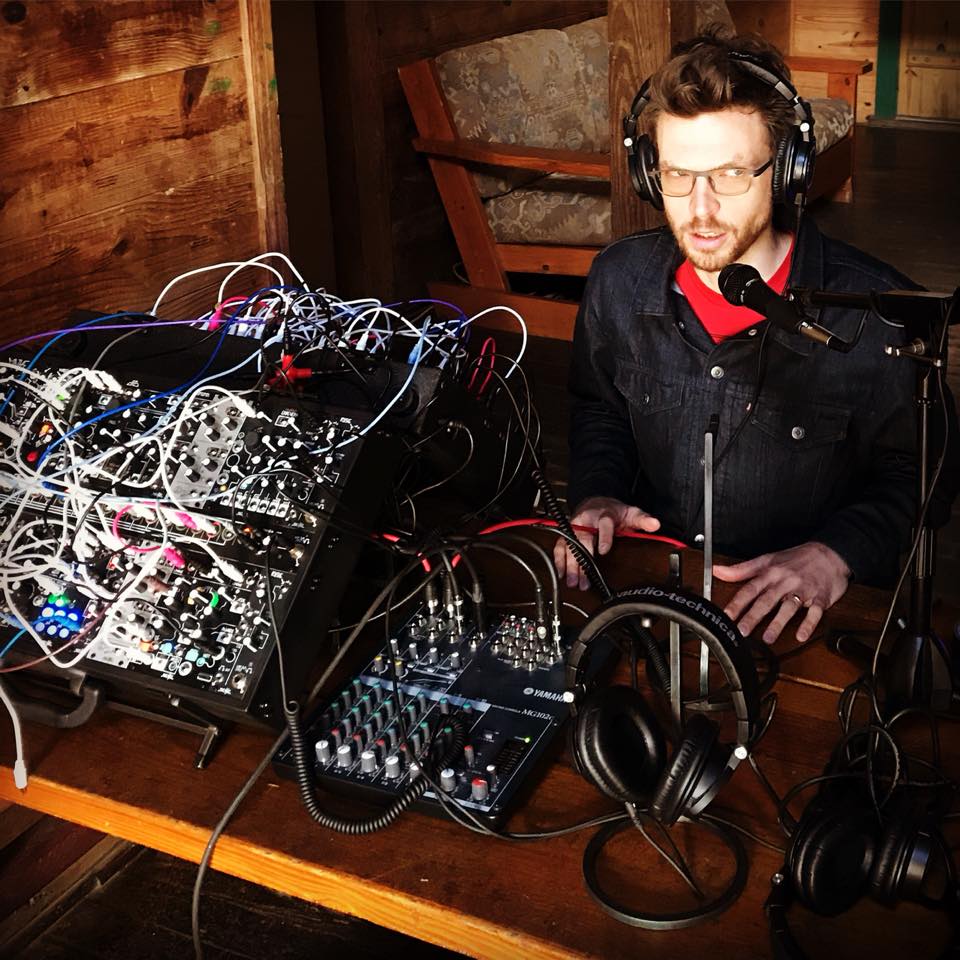
Would you please describe the system you used to create the music for us?
It’s basically what I described above. The Morphagene-based system gets the lion’s share of the work here, though there is definitely some René-driven melodic synth stuff as well.
Can you outline how you patched and performed your Modulisme session?
I envisioned a sort of cocooning. I’ve felt strangely insulated and isolated, like many, over the past couple years. Large portions of this were made by slowly changing Slide points (playback windows) on Morphagene Reels made from field recordings of home life especially a comforting few from several years back when my kids were really little, and also recordings of other music that I previously recorded. I’d do slow Slide modulation with the start points loosely synced to other things in the system, and then build up other sounds around them. I made a video in 2020 called “Acousmatic Gestures” that demonstrates my basic technique for a great deal of my recent patching (the last 3-4 years). I aim toward a sort of spinning, gathering, looping, encapsulating and enclosing, constant motion while also stationary. Thinking about the concept of the “envelope” as being something that “envelops” or contains. A container, as in Ursula Le Guin’s “Carrier Bag Theory of Fiction.” The shape (rhythm) and size (length) of the envelope juxtaposes with the shape and size of what it contains or modulates. The relationship between the two constantly changes.
I use contact microphones to improvise gestural flourishes. There is also some more traditional synth sequencing in parts. Filling an entire hour could be seen as daunting, but I chose to think of it as freeing, no need to rush. Letting things play out and evolve in a way I felt was natural rather than trying to breathlessly move to the next thing.
What do you think that can only be achieved by modular synthesis that other forms of electronic music cannot or makes harder to do?
I think the key difference with electronic music in general is that the “note” isn’t the quantum, it’s not the smallest musical atom. We can manipulate the things that make up notes, and transcend the existence of notes. It’s possible to varying degrees with a lot of electronic music tools but I find it easier and faster with patch cables.
What would be the system you are dreaming of?
It would be the one I have now.
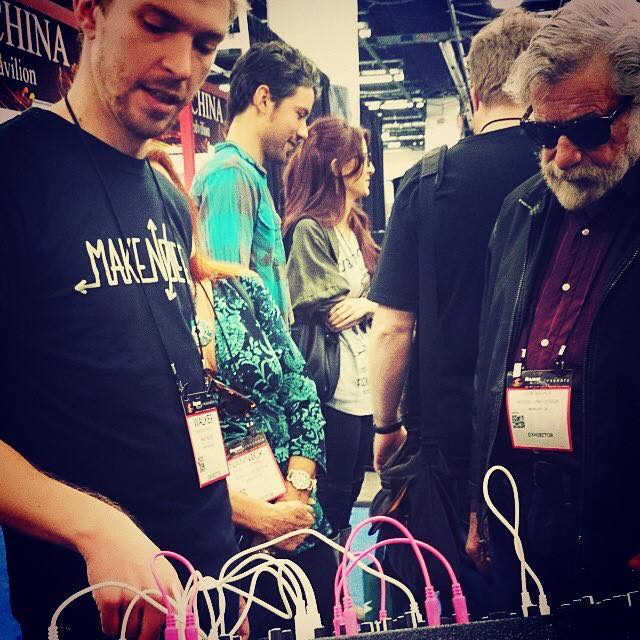
Are you feeling close to some other contemporary Modularists?
Which ones?
By “close to” I think maybe you mean people who are musical influences and who I also personally know? I’m lucky! I am already friends with many of my biggest inspirations. Here are a few:
Devin Booze, Jake Pugh, Meg Mulhearn, Peter Speer, Bana Haffar, Alissa DeRubeis, Felisha Ledesma, Brett Naucke, Derrick Baseck, Mike Dobler, Gardener (Dash Lewis), Tyondai Braxton, Robert Aiki Aubrey Lowe, M Geddes Gengras, Retribution Body (Matthew Azevedo), Caterina Barbieri, Hainbach, Rodent, Scanner
Which pioneers in Modularism influenced you and why?
Most of my influences did not take modular as their only instrument. Eliane Radigue’s Arp-2500 pieces taught me a certain way to listen attentively, but some of my favorite work she did was using feedback between tape machines, and she has been composing primarily with acoustic instruments for decades now! Wendy Carlos is also an influence but mostly for her work on tuning research (and the results in Beauty In The Beast). Laurie Spiegel used computers, Luc Ferrari used field recorders, Lee Perry used a studio mixing board, David Tudor used handmade feedback networks, The Bomb Squad used a stack of records and samplers, La Monte Young used stringed instruments, pianos, and custom-made tuned oscillator banks. Wayne Shorter, Bill Evans, Ornette Coleman, Alice Coltrane, Sun Ra, Pete Rock, George Lewis… even though modular is my main instrument, I think most musical knowledge is applicable across the board.
I did take aesthetic cues early on in my time with modular from the work of David Rosenboom and Suzanne Ciani – but I really think that it is only in the last decade or so that the modular synth has become something that is the primary instrument for many musicians.
I also take great influence from the writings and designs of modular engineers, particularly Grant Richter, Dieter Doepfer, and Tony Rolando. I don’t do circuit design, but instrument design is as important to my musical philosophy as is musicianship itself, as I discussed above.
Any advice you could share for those willing to start or develop their “Modulisme” ?
Don’t be intimidated. There are plenty of, particularly online, areas where people go to ask beginner advice, and they tend to receive a flood of warnings and caveats, peppered with recommendations for whatever the hottest new module is this month. But one of the beauties of modular synths is that you can make beautiful, ugly, and interesting sounds and music with almost any set of modules, with or without knowing what you are doing. Just get a good power supply and a few basic modules and you’ll be doing it in no time. Never stop playing.
